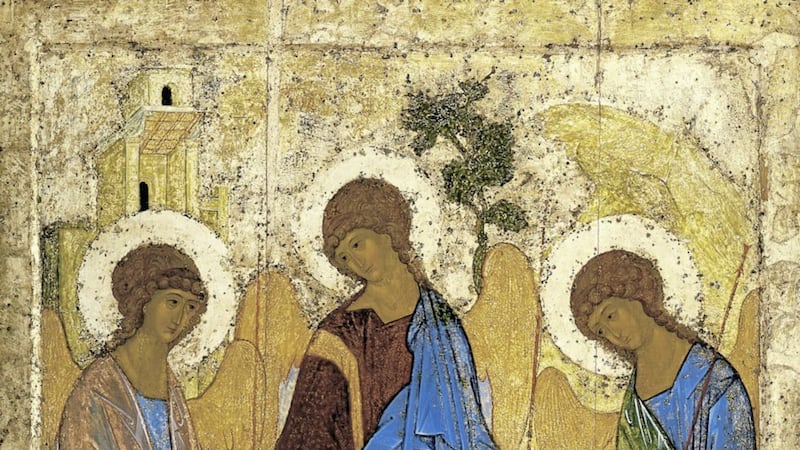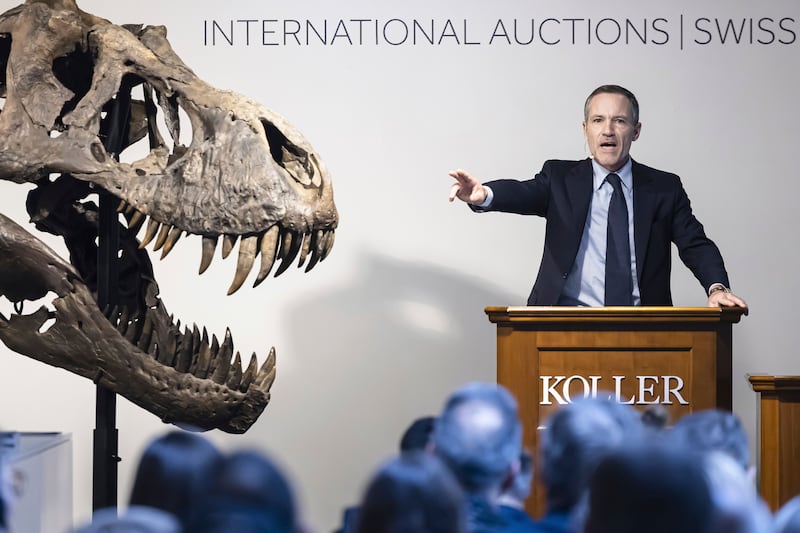TRINITY Sunday, which is celebrated on the Sunday after Pentecost, is the occasion when the Church places specifically before us belief in God as Father, Son and Holy Spirit.
Now if we think about what Christianity teaches about God, we might well ask: "What difference does it make if we just talk about God as God, rather than about God who is the Blessed Trinity of Father, Son, and Holy Spirit? What, in short, does the Trinity tell us about God that the word 'God' itself doesn't tell us or apparently can't tell us?"
Christian faith says that we can get some kind of answer to that question if we look at Jesus Christ and try to understand the meaning of his life, death, and resurrection.
In Jesus Christ, faith maintains, God revealed himself as saviour, or as St John's Gospel puts it: "God so loved the world that he gave his only Son, so that everyone who believes in him may not be lost but may have eternal life" (John 3:16).
Now, if God revealed himself to us or communicated with us through a human being, then that surely implies that what God is like can best be conveyed to us in and through a human being, rather than, say, through a mighty event in nature.
Very often when a natural catastrophe occurs, such as an earthquake, or a hurricane or a tsunami or an avalanche, you might hear people say: "It's the hand of God." Such an event is even known in legal terminology as an 'act of God'.
But Christianity, although it recognises God to be the creator of the world and to be ultimately in charge of all the forces of nature, doesn't say that God reveals himself or shows his hand supremely in such natural forces and phenomena.
Rather, Christian faith claims that God showed his hand most truly and most unmistakably in Jesus Christ, who lived, died, and was raised from the dead, so that the world might know God and have access to God.
For what was of greatest importance to Jesus was his relation to God his Father in prayer, and his relations with the people around him, the two being intimately related.
This seems to be implicit in the New Testament assertion: "If we don't love people we can see, how can we love God, whom we cannot see?" (1 John 4:20), to say nothing of the overwhelming evidence of the Gospels themselves.
Jesus loved those around him and wanted to lead them to God.
The God we seek - in other words, the God who became flesh in Jesus Christ - is a God who chose to open up his life to share it with us, his creation.
He didn't decide to live a kind of solo, reclusive existence, but wanted to share his life with his creatures.
We speak of God as being a living God. That must mean that there is a life within God, that God contains a life or a living community within himself, which our predecessors in the faith came to understand as Father, Son, and Holy Spirit, an understanding they passed on to us.
It was this divine life that God wanted to share with us in sending his Son into the world. And that in turn would seem to suggest that we will only be at home with this God to the extent that we too open up our lives and share them with others.
But that, of course, is only one side of the story. The strange thing about Jesus Christ - and hence, from a Christian perspective, about God - is that no matter how much he shared his life with others and finally gave his life for others, he always remained elusive, mysterious, and enigmatic and in so doing reflected accurately the impenetrable mystery of the God we acknowledge and pray to as the Blessed Trinity.
So in seeing Jesus as the way to understanding God, it's perhaps important not to confuse his openness to others with intrusiveness or possessiveness, as if Jesus needed to 'take people over' in order to be his own mysterious self.
Similarly, in worshipping the Blessed Trinity we can give thanks and praise to God for opening up the divine life to us, but also recognise at the same time with awe and wonder that that divine life, which sustains and enriches and finally saves us, will always outreach and surprise us, and will always remain mysterious and unfathomable to us and for us, now and for all eternity.
:: Martin Henry, former lecturer in theology at St Patrick's College, Maynooth, is a priest of the diocese of Down and Connor








